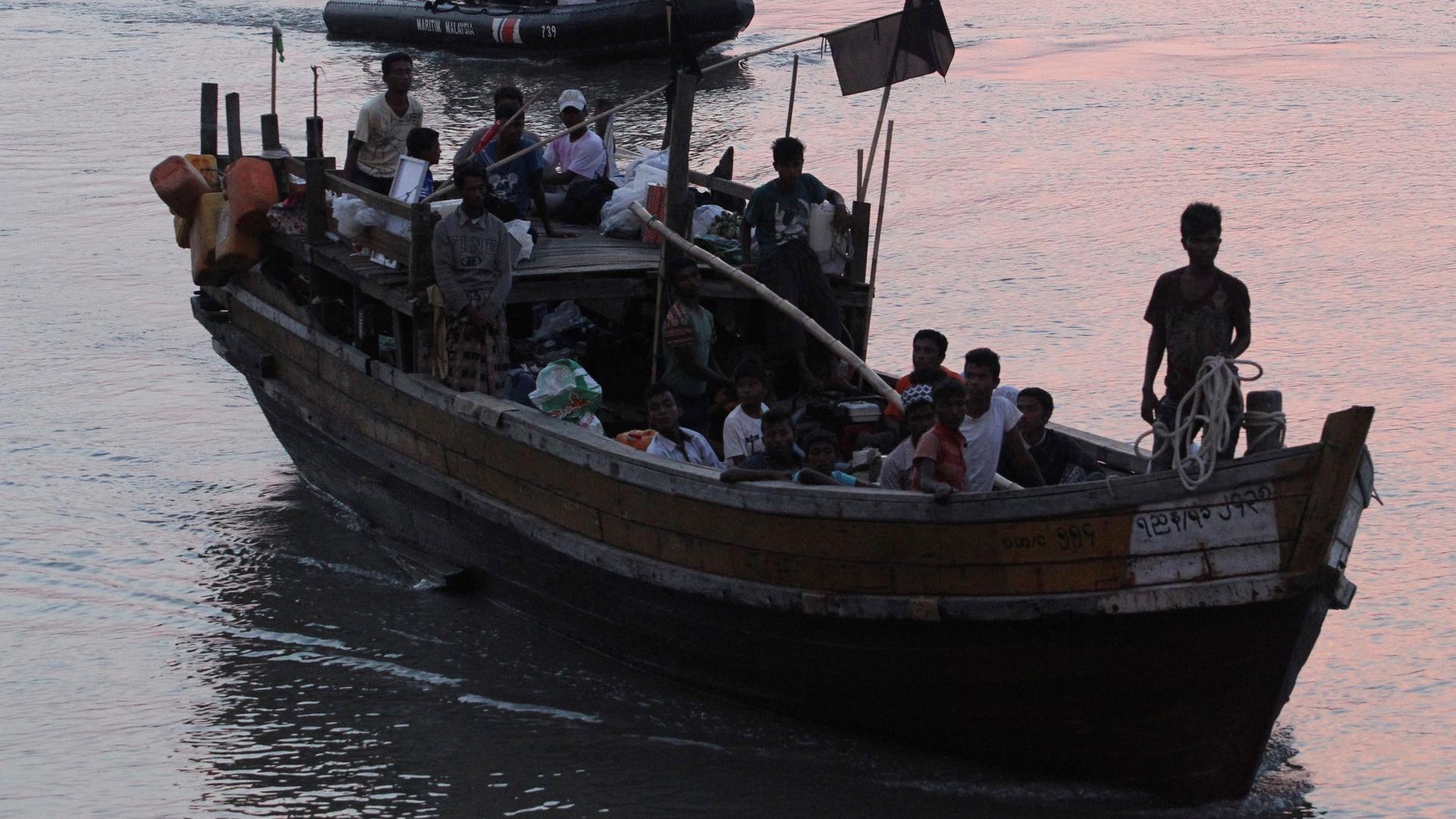A US report shows big strides on human trafficking. Advocates say the message is misleading.
This year marks 20 years since the US first made a historic commitment to ending modern slavery.
“We’ve accomplished so much in the last 20 years,” said John Richmond, US ambassador-at-large of the State Department’s Office to Monitor and Combat Trafficking in Persons, during the June 25 release of the 2020 Trafficking in Persons Report.
“Our engagement on this has made a difference. This report and the US have made a positive difference.”
Every year, the US issues an annual report that ranks countries by their progress fighting human trafficking. Countries in the lowest category are restricted from receiving US aid.
The 2020 report lists 22 countries receiving improved rankings for their work on the issue over the past year.
“The department put this out on time without any delays in the midst of a global pandemic and that itself serves to show the priority this administration and the secretary has placed on this issue,” Richmond said, reminding the audience that President Donald Trump had also hosted a summit on human trafficking, and issued an executive order to combat online child exploitation.
But advocates across the globe warn that with the pandemic and economic downturn, there’s an urgent risk that more people will fall prey to human traffickers. They say the report is poorly timed, and counterproductive.
“At this moment, at the 20th anniversary, the State Department wants to tell a story of success and progress. And that’s just not the story that the data tell.”
“At this moment, at the 20th anniversary, the State Department wants to tell a story of success and progress,” said Martina Vandenberg, the founder and president of The Human Trafficking Legal Center. “And that’s just not the story that the data tell.”
Especially because right now, she says, the global pandemic is making more people vulnerable to human trafficking.
Related: As Lebanon’s financial crisis worsens, migrant workers are being dumped on the streets like ‘trash’
“So, what we’re seeing around the globe is people going into greater debt. People now trapped in countries to which they have migrated, but completely unemployed,” she said. “And the likelihood is that those people will be more vulnerable to indentured servitude and more vulnerable to forced labor when the world begins to open up again.”
Vandenburg also takes issue with the US giving itself the highest possible ranking. Many advocates felt that the US deserved to be downgraded this year.
Jean Bruggeman is the executive director of Freedom Network USA. She says many of the president’s border and immigration policies increase wait times and denials, putting more people at risk for trafficking, including vulnerable populations, like LGBTQI people.
“I do not think that the United States is engaged in sustained efforts. And I think the report tells you that when they say that, you know, they maintained prosecution efforts, at best, they reduced efforts to provide protection. And the only prevention work they do is federal agency training, which is not actually prevention. It’s not actually changing the circumstances, which puts people at risk.”
Related: Options dwindle for Venezuelan migrants across Latin America during the pandemic
Neha Misra, a specialist at the Solidarity Center, a nongovernmental organization, says the report’s rankings have always been somewhat politicized, but this year’s takes it to another level. She questions, for example, the upgraded ranking of Saudi Arabia, and says it may lead that country to do less to combat trafficking.
“Even countries that don’t get US aid, reputationally, it meant a lot. It was embarrassing to be on [the] tier-three or the tier-two watchlist. And if the tier rankings don’t mean anything, then that reputational pressure is gone.”
“Even countries that don’t get US aid, reputationally, it meant a lot. It was embarrassing to be on [the] tier-three or the tier-two watchlist. And if the tier rankings don’t mean anything, then that reputational pressure is gone.”
For survivors who are now in the fight against human trafficking, the report is disheartening, says Suamhirs Piraino-Guzman. He was kidnapped in Honduras as a child and smuggled into the United States by human traffickers.
Related: In Ciudad Juárez, a new ‘filter hotel’ offers migrants a safe space to quarantine
Piraino-Guzman was appointed by President Barack Obama to the US Advisory Council on Human Trafficking in 2015.
“I’ll be honest with you. I think we need to stop pretending that we’re moving forward.”
If the US isn’t honest about the reality of human trafficking, he said, it’s not really serving the people who need help the most.
Our coverage reaches millions each week, but only a small fraction of listeners contribute to sustain our program. We still need 224 more people to donate $100 or $10/monthly to unlock our $67,000 match. Will you help us get there today?
